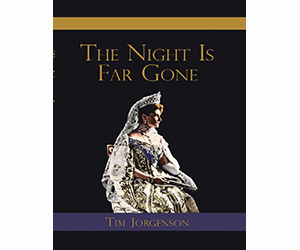During a “Democracy at a Crossroads” seminar on Wednesday, MSNBC host Joy Reid warned that “this election is a litmus test for American tolerance for fascism.” But her definition was — how best to put it — wide of the target. “The elements of fascism are rooted in this nationalistic drive for more babies for the state, for women to be subordinate to men, for a strongman-driven nation, and a deep sort of state-based religiosity,” she declared. This is neither fascism nor what is at stake in this election.
“The question of, ‘America has become too soft and feminine’ — I think that is a fascist litmus test,” added Reid. “This question of whether a society is too soft and feminine — it was alarming to me that a majority of Hispanic Protestants agree.” There is more, but this is enough to make the point.
Babies, strong men, religion — the enemies Reid identifies reveal her own ideological position. Reid seems to espouse a form of secular feminism that arose alongside queer theory in the second half of the 20th century. Among other things, its proponents argue that 1) women don’t need men because they can do everything a man can do, 2) childbearing is a form of female subjugation, and 3) religions that say otherwise were simply invented to suppress women. In other words, neo-feminism declared war on the natural family, using legalized abortion and no-fault divorce as its primary weapons.
LifeNews is on GETTR. Please follow us for the latest pro-life news
Of course, babies, strong men, and religion are not distinctive features of fascism. They have been prevalent in most societies throughout human history, at least the ones that became successful. Reid tries to square the circle by sprinkling in references to the nation-state. But nation-states are also not distinctive features of fascism; they predated it by at least several centuries, and many nation-states currently exist that are not fascist.
What Is Fascism?
Most people who use the term “fascism” — often by associating it with things they don’t like — simply assume that it is bad without bothering to understand what it is. If you asked someone to define their use of the term, they would likely respond with some version of, “it’s like what Hitler did.”
In reality, fascism is derived from Fascisti, the members of the political organization led by Bennito Mussolini, Hitler’s weaker Italian ally. It refers to a bundle of sticks used to represent Italian labor unions since the 1870s.
Here’s how Merriam-Webster defines “fascism”:
“A populist political philosophy, movement, or regime (such as that of the Fascisti) that exalts nation and often race above the individual, that is associated with a centralized autocratic government headed by a dictatorial leader, and that is characterized by severe economic and social regimentation and by forcible suppression of opposition.”
A brief reflection suggests that any element in isolation is insufficient to qualify as fascism. For instance, a populist movement like that led by William Jennings Bryan is simply populism, not fascism. A philosophy exalting the group (such as a nation or race) above the individual is not fascism but collectivism (possibly also racism). A centralized, autocratic government led by a dictator is authoritarianism, totalitarianism, or perhaps even despotic. Severe economic and social regimentation is a caste system. And suppression of opposition is oppressive or censorious.
A brief reflection also suggests that parts of Reid’s anecdotal description fit this definition of fascism poorly. For instance, nowhere does the definition suggest that “state-based religiosity” is an essential element of fascism. In fact, like many totalitarian ideologies, fascism most thrives in the absence of, or as a substitute for, Christianity. What Reid seems to be most closely describing is neither historical fascism, nor the positions of current political parties, but the fictional dystopia in “The Handmaid’s Tale.”
Once more, brief reflection suggests that elements of this definition also map onto the political aspirations of America’s progressives. They value a centralized government. They gleefully endorse the suppression of their political opponents. And, for all their talk about individual rights, they don’t mind trampling on certain rights of the individual (religious freedom, freedom of speech, right to bear arms) when it conflicts with their views about what is best for the nation or special identity groups.
The point of the previous paragraph is not to argue that progressives are really fascists by another name. The point is rather to demonstrate the hazards of throwing around labels imprecisely, without understanding what they really mean or whether they are appropriate to new situations. Our political discourse would be clearer, more precise, and more informative if people would say exactly what they mean. If there are real evils to warn against, this can be done without mitigating the rhetorical effect of describing it.
On the other hand, if an alarming label is not warranted or insincere, then speakers who use it maliciously only harm their own credibility by cheapening the term. In this case, crying “fascist” is at risk of becoming the new crying “wolf.” Suppose, for example, that a future politician really did arise who wanted to recreate Mussolini’s fascist Italy. Reid could label him a “fascist,” but people who remembered her poor application of the term in 2024 would be unpersuaded. Irresponsible use of alarmist rhetoric is short-sighted.
What Is the Good Society?
On that note, disparaging childbearing is the most short-sighted position of all. Earlier this year, the Centers for Disease Control and Prevention reported that U.S. total fertility rates had dropped to another historic low of 1.6 births per woman, well below the replacement rate. This fact creates problematic questions that have nothing to do with a sinister agenda of repression. If America’s population of children declines, who will pay into Social Security as previous generations age? How will colleges keep the doors open with fewer students? How will cities control crime with declining populations?
For millennia, the prosperity of a nation was measured by its population because the limiting factor was how many mouths its land could feed. Modern farming practices and technology created a population boom — and therefore a prosperity boom — by expanding food production exponentially. This has created a new phenomenon where populations are shrinking not because of disease or a lack of food, but simply because people are choosing to have fewer children. Modern society is choosing to make its future generations less prosperous.
This may sound like having children is “for the state” as Reid alleged, but it’s actually for the good of the whole society. Those advocating for more children don’t want to hand the children over to the state. The people who think children should belong to the state are on the political Left, and they are pushing policies such as woke indoctrination in classrooms and universal pre-K (to extend the indoctrination to even earlier ages).
Many of Reid’s other “fascist” bogeymen are likewise simply features of a healthy society. She complains of people who think America has become “too soft and feminine.” This, again, is imprecise. Those who don’t want America to be soft and feminine don’t mind females being feminine; they merely object to effeminate males — those who will be called upon to fight and die in wartime. To test whether this is a bad thing, simply ask yourself, which makes a better weapon: a pillow or a stone? When a nation’s men become soft, it easily falls prey to the first predator to come along.
Some of her accusations are simply wide of the mark. “State-based religiosity,” or civil religion, has always been a feature of American politics, and it is just as alive and well in the Biden-Harris administration as ever. Strongmen have been building kingdoms since Nimrod (Genesis 10:10), but the “strongman-driven nation” is a modern invention that conservatives and liberals have striven against since the days of the U.S. Constitution.
The reality is, America is unlikely to see a recreation of Italian fascism, whatever populist or nationalist appeals are made. Our people are different, and their identity is different. But strong families — with strong men to lead and nurturing mothers to bear and raise children — remain the building block of society because human nature is the same in all times and places. By equating families with fascism, Reid simply strips the latter of meaning. But the need for families remains as strong as ever.
LifeNews Note: Joshua Mercer writes for CatholicVote, where this column originally appeared.








